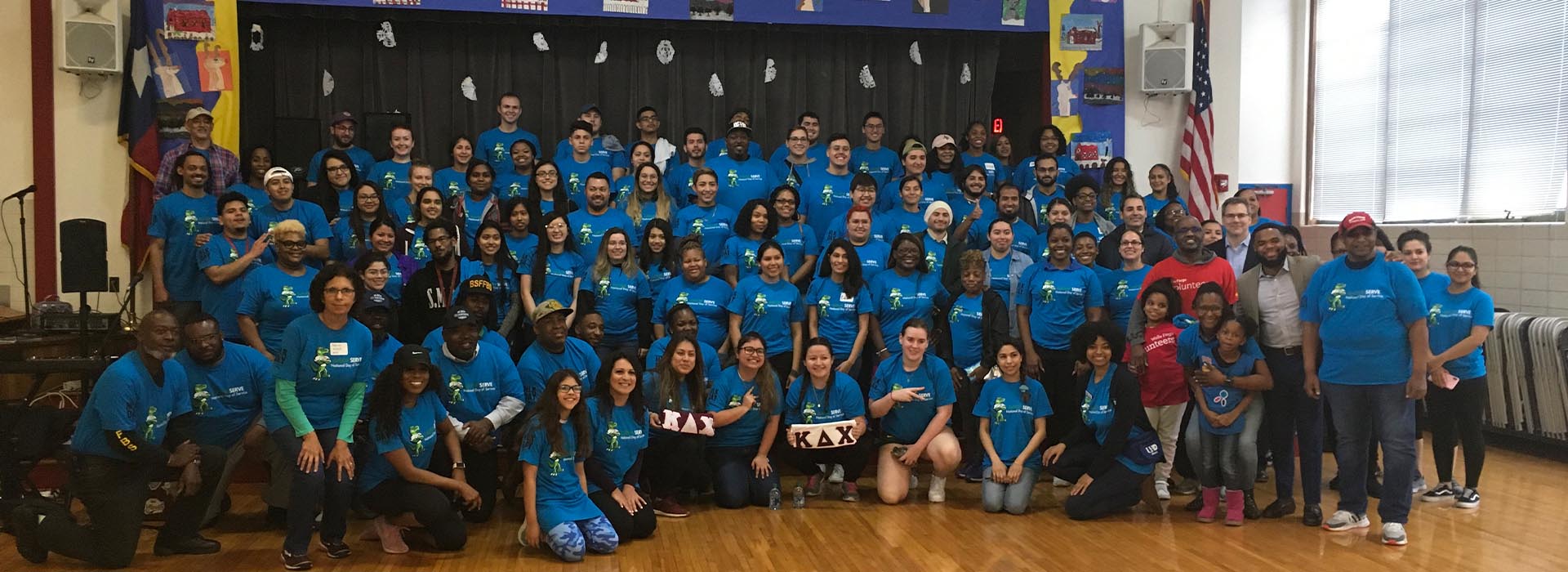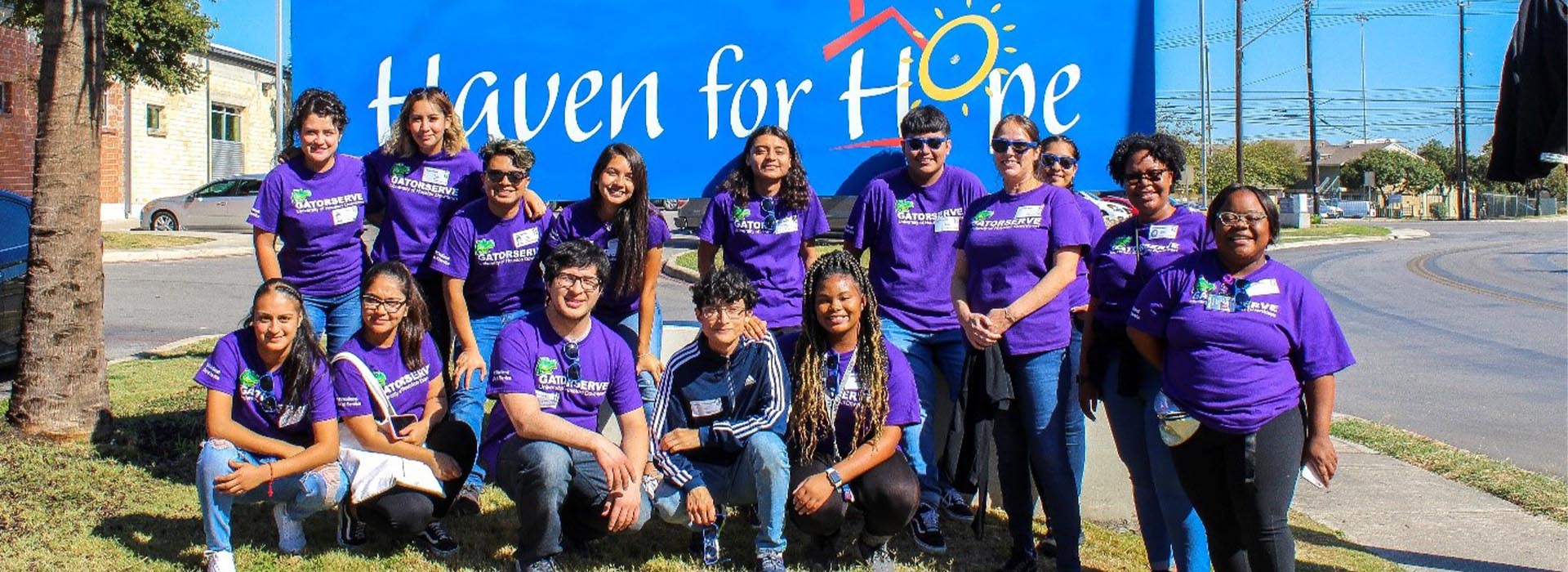Center for Community Engagement & Service Learning (CCESL)
COVID-19 hours available by phone or email:
Monday - Friday, 8 a.m. - 5 p.m.
Closed on holidays.
Email:
ccesl@uhd.edu
Mailing Address:
University of Houston-Downtown (UHD)
One Main Street, OMB-S417
Houston, TX 77002
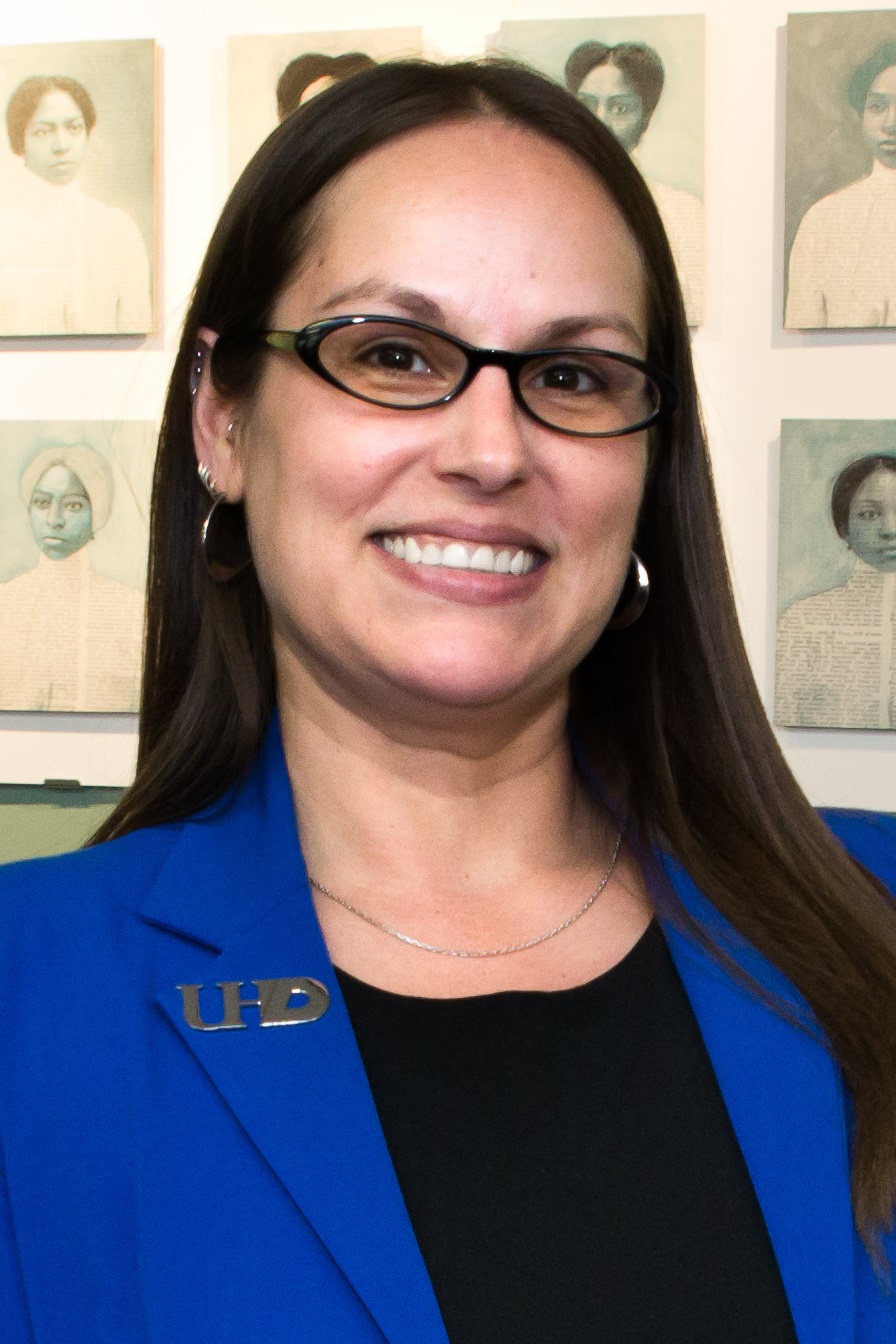
Associate Director:
Caroline Smith, MBA
713-223-7922
smithca@uhd.edu
Program Coordinator:
Natasha Nowlin
713-221-8489
nowlinn@uhd.edu
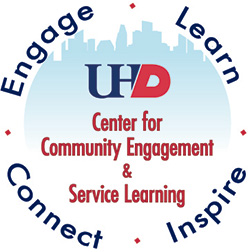
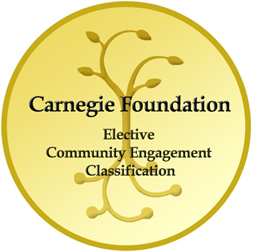
Welcome to CCESL
The purpose of the Center for Community Engagement and Service Learning (CCESL), we believe that allowing students to participate in community activities and develop creative solutions to community issues benefits students' ultimate ability to think critically about the world around them. We accomplish this through academic and co-curricular community engagement activities as well as by offering a wide variety of service learning course options each semester.
Check out our Volunteer Resource Page to find various volunteering and engagement opportunities!
Vision
Our vision is to build bridges to the community to create a more engaged campus, cultivate social responsibility, and develop a vibrant learning environment for UHD students.
Mission
CCESL's mission is to connect the university to the community by cultivating local and regional relationships with non-profit organizations, government agencies, businesses, and individuals, thus enhancing student learning, developing responsible citizenship, and serving the community.
Goals
- To enhance the academic learning and intellectual growth of students by engaging in high impact instructional practices, career-related experiences and internships, and linking student interest and skill-sets with identified community needs and opportunities.
- To strengthen students'; civic values and moral character by embedding service learning in the curriculum, responding to community needs, and engaging in service to others through direct volunteer service, internships, and community development activities.
- To improve the quality of the social environment of the community by engaging in programs that foster harmony.
- To increase the capacity of the community to provide solutions to community needs and challenges such as literacy, homelessness, child and adult maltreatment, and civic issues.
Community Engagement
Community engagement is the process of working collaboratively with and through groups of people affiliated by geographic proximity, special interest, or similar situations to address issues affecting the well-being of those people. It is a powerful vehicle for bringing about environmental and behavioral changes that will improve the health of the community and its members. It often involves partnerships and coalitions that help mobilize resources and influence systems, change relationships among partners, and serve as catalysts for changing policies, programs, and practices (CDC, 1997, p9– published in CDC, Principles of Community Engagement Second Edition, 2011, p.3).
Service Learning
Service learning is a teaching and learning strategy that integrates meaningful community service with instruction and reflection to enrich the learning experience, teach civic responsibility, and strengthen communities (Learn and Serve America National Service Learning Clearinghouse). Service learning is a process of involving students in community service activities combined with facilitated means for applying the experience to their academic and personal development. It is a form of experiential education aimed at enhancing and enriching student learning in course material. When compared to other forms of experiential learning like internships and cooperative education, it is similar in that it is student-centered, hands-on and directly applicable to the curriculum.

